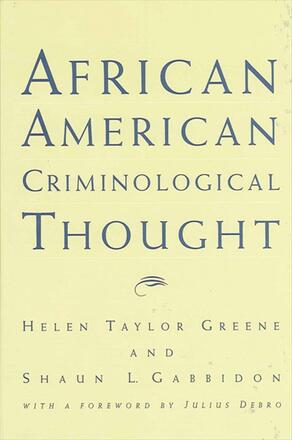
African American Criminological Thought
Alternative formats available from:
Examines African American contributions, both historical and contemporary, to criminological thought.
Description
This landmark book presents the contributions of African Americans past and present to understanding crime, criminological theory, and the administration of justice. The authors devote individual chapters to African American pioneers Ida B. Wells-Barnett, W. E. B. Du Bois, E. Franklin Frazier, and Monroe N. Work, and contemporary scholars Lee P. Brown, Daniel Georges-Abeyie, Darnell F. Hawkins, Coramae Richey Mann, William Julius Wilson, and Vernetta D. Young. Included for each individual are a biography, information on their contributions to criminological thought, and a list of selected references. A wide range of issues are covered such as lynching, the convict lease system, homicide, female crime and delinquency, terrorism, community policing, the black ethnic monolith paradigm, and explanations of criminality.
Helen Taylor Greene is Professor in the Administration of Justice Department in the Barbara Jordan–Mickey Leland School of Public Affairs at Texas Southern University. Shaun L. Gabbidon is Professor of Criminal Justice in the School of Public Affairs at Penn State Harrisburg.
Reviews
"Exceptionally well-written, this book provides an overview of both historical and contemporary African American criminologists and their contributions to the study of crime and justice. The work breaks new ground in exposing readers to African American scholarship that has been neglected previously by mainstream scholars. The strength of the book lies in the biographical information, where personal accounts provide a rich social context for each scholar while outlining the reasons and events that sparked their interests in the study of crime and justice." — Lee E. Ross, editor of African American Criminologists, 1970–1996